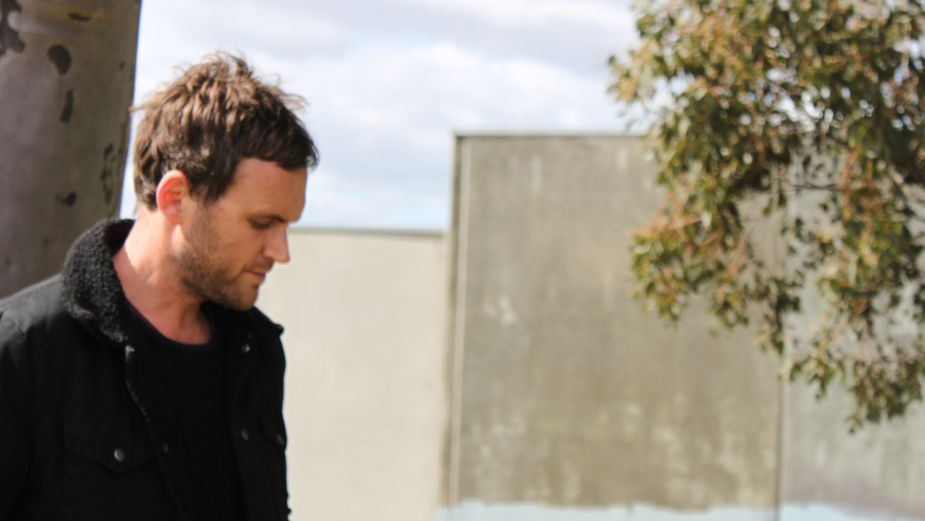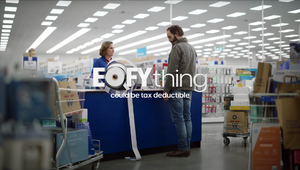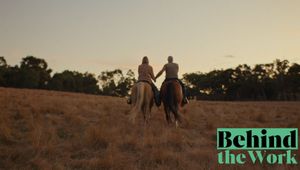
The Directors: Sam Holst

Born in Melbourne, Australia, MOFA Productions director Sam Holst studied Communications and Film at RMIT University.
His short film MEATHEAD premiered In Competition at the Cannes Film Festival and was awarded the Crystal Bear for Best Short Film in Generation at the Berlin Film Festival.
Holst was also selected to attend the Cannes Cinéfondation Residence in Paris, to write and develop his original feature drama LAST AUTUMN, currently in financing.
Also in development with the support of Screen Australia is HIGH WATCH.
His work in creative advertising has won awards at top creative shows internationally, including Gold at the Cannes Lions, Clios and AICP.
Name: Sam Holst
Location: Melbourne, Australia
Repped by/in: MOFA (Australia / New Zealand) The Directors Bureau (US) Markenfilm (Germany)
Awards:
Otrivin - Film & TV Campaign - Saatchi & Saatchi, Europe
Winner - Gold - Cannes Lions - Film & TV - Campaigns
Winner - Gold - Direction - Axis Awards - Film & TV
Winner - Silver - Eurobest Awards - Film & TV
Winner - Silver - London International Awards - Film & TV
Pepto Bismol - Branded Short Film - Publicis, New York
Winner - Silver - Cannes Lions - Film & TV
Winner - Silver - Clio Awards - Film & TV
Winner - Gold - Epica Awards - Film & TV
Winner - Gold - Clio Awards - Music
Winner - Gold - AICP - Music
Winner - Silver - London International Awards - Branded Content
Westpac Chopper Appeal - Online Film Campaign - DDB, New Zealand
Winner - Bronze - Cannes Lions - Media
Winner - Bronze - Facebook Awards
Winner - Best Facebook Campaign - Mashable Magazine
Meathead
Crystal Bear – Berlin Film Festival – Best Short Film
LBB> What elements of a script sets one apart from the other and what sort of scripts get you excited to shoot them?
Sam> The strength of the idea and the quality of the writing. Something that challenges you and offers a chance to make a strong piece of work. You’re always looking to expand and grow, rather than repeat yourself or go backwards, so scripts that offer the chance to do that.
LBB> How do you approach creating a treatment for a spot?
Sam> The creative and how you see it coming to life determines the treatment or angle you might bring to it. Sometimes that’s immediately clear when you first read a script, while for others the process of treating reveals this to you, with any luck.
There can be certain images, films, music or other influences which spark ideas along the way as well, but it’s best when it comes through you somehow. To make it personal.
LBB> If the script is for a brand that you're not familiar with/ don’t have a big affinity with or a market you're new to, how important is it for you to do research and understand that strategic and contextual side of the ad? If it’s important to you, how do you do it?
Sam> It’s good to understand the general strategy and intention of what you’re doing, but not in a way that would compromise being able to come at it with a fresh or unaffected perspective, so it’s not all that important to me. Sometimes not knowing everything can be a good thing.
LBB> For you, what is the most important working relationship for a director to have with another person in making an ad? And why?
Sam> It’s such a collaborative process, all relationships are key and if any aren’t it can affect things in those areas. As a director though, you do need a good rapport with your producer first and foremost, as everything you do branches out from that partnership. From there, being aligned with the agency about what you’re all trying to achieve and having a fundamental trust in that process.
LBB> What type of work are you most passionate about - is there a particular genre or subject matter or style you are most drawn to?
Sam> I’m most interested in dramatic or humorous narrative work with a focus on people and relationships, but if a great script comes along and it speaks to you, then you’re going to get passionate about whatever that is.
LBB> What misconception about you or your work do you most often encounter and why is it wrong?
Sam> That I’m a comedy director from New Zealand because I’m not all that funny. And I’m Australian.
LBB> Have you ever worked with a cost consultant and if so how have your experiences been?
Sam> Not sure, maybe from afar. They could have reviewed a treatment and budget or something on a pitch, but I’ve never worked with one directly.
LBB> What’s the craziest problem you’ve come across in the course of a production – and how did you solve it?
Sam> Nothing too crazy. Just the usual, animals, kids, practical effects, sometimes all at once while shooting remotely in ungodly heat.
LBB> How do you strike the balance between being open/collaborative with the agency and brand client while also protecting the idea?
Sam> The idea is usually fine, it’s more the key choices to do with casting, shooting, editing, grading, sound, music and so on that you want to be able to direct and shape as much as possible because every element along the way matters.
I’m always open to collaboration and input from anywhere that will make a piece of work stronger though, wherever that comes from and at any stage of the process.
LBB> What are your thoughts on opening up the production world to a more diverse pool of talent? Are you open to mentoring and apprenticeships on set?
Sam> It’s great. And essential. I’m of course open to mentoring and apprenticeships on set and beyond, there should be more of it. This industry is still too closed for far too many people.
LBB> How do you feel the pandemic is going to influence the way you work into the longer term? Have you picked up new habits that you feel will stick around for a long time?
Sam> I look forward to getting back to working as close to how we did before and moving toward something even better from there. It’s good to adapt and roll with the limitations of the past year or so as everyone has, but it isn’t ideal.
Some parts of the world have been more fortunate than others in terms of being able to film and there’s been a bit more empathy and understanding on productions between people as a result perhaps, so hopefully that aspect continues. Being kinder.
LBB> What’s your relationship with new technology and, if at all, how do you incorporate future-facing tech into your work (e.g. virtual production, interactive storytelling, AI/data-driven visuals etc)?
Sam> I’m open to anything but it hasn’t really been a major part of my work up until now. I’d also be happy to just shoot human beings on 35mm forever.













